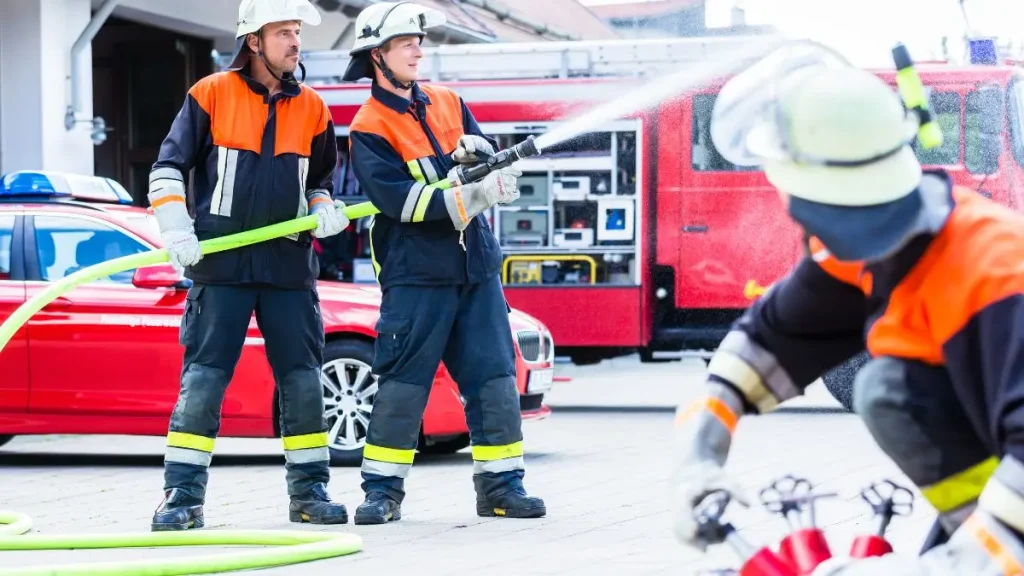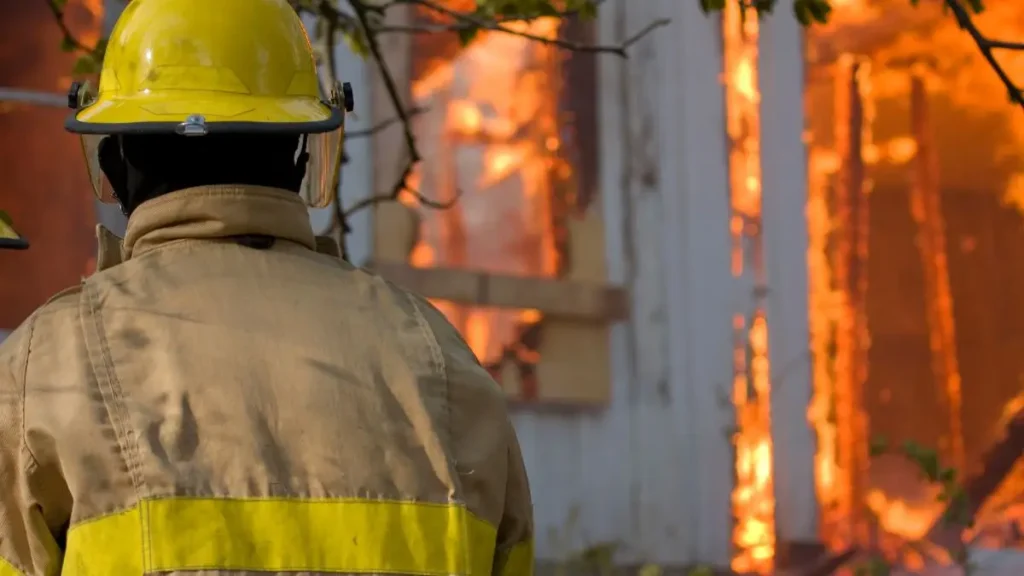New Jersey Mobile Home Fire Leaves One Dead, Police Investigate
I still remember reading about this fire, and it hit me hard because these things feel so sudden and preventable. On Monday afternoon, around 4:45 p.m., a mobile home on West Sixth Street in Moonachie, New Jersey, caught fire.
By the time first responders arrived—the Moonachie Police Department, the Moonachie Fire Department, and the First Aid and Rescue Squad—the flames had already taken a devastating toll.
Inside the home, they found a man who, tragically, could not be saved. He was pronounced dead at the scene. I can only imagine how shocking it must have been for neighbors, many of whom likely saw the smoke or heard the sirens and rushed outside in concern.
A person from a nearby trailer was also treated on-site and then sent to Hackensack Medical Center, thankfully surviving the incident.
Right now, detectives and arson investigators from the Bergen County Prosecutor’s Office are carefully examining the scene. As someone who follows these stories closely, I know it can take days—or even weeks—before we get clear answers about the cause.
But while we wait, it’s worth thinking about how vulnerable mobile homes can be to fires and what small steps we can take to protect ourselves and our neighbors.
Have you ever thought about your own fire safety setup at home? It might be a good time to double-check those smoke alarms and escape routes—you never know when a few minutes could make all the difference.
Eyewitness Accounts and Community Impact
When I look at stories like this, I often wonder what it feels like to live through the smoke and chaos. Neighbors of the Moonachie mobile home were understandably shaken. Some rushed outside at the first hint of smoke, only to witness the fire grow in minutes.
The Moonachie First Aid and Rescue Squad shared on their Facebook page how they treated a neighbor from a nearby trailer who needed urgent medical attention and sent them to Hackensack Medical Center. Reading their post, you can almost feel the tension and urgency of the moment.
Communities like this often come together in crisis. I’ve noticed that even small gestures—checking on neighbors, offering temporary shelter, or just sharing updates—make a huge difference in helping everyone feel a little safer and supported. It’s a reminder that fire safety isn’t just personal; it’s communal.
Have you ever reached out to your neighbors after an emergency? Even a quick check-in can matter more than you think.
Investigative Details: Cause and Progress
Pix11 reports that detectives and arson investigators from the Bergen County Prosecutor’s Office responded to the scene immediately after the fire. According to their coverage, officials are still working to determine how the fire started, and no further details about the cause have been released yet.
From my experience, investigations like this take time because fire scenes are delicate. Investigators have to sift through debris, examine electrical systems, and interview witnesses. While it can feel frustrating not to have immediate answers, this careful process is what eventually gives families and the community clarity.
If you’re reading this, it’s a good moment to consider: do you know the fire risks in your own home? Understanding potential hazards now can save lives later.
Investigations like this remind me of similar cases, such as a recent early morning fire in Polson, Montana, where authorities also had to carefully examine the scene to determine the cause
Common Causes of Mobile Home Fires

It might surprise you how many mobile home fires could be prevented. Experts frequently point to a few recurring causes: electrical faults, heating equipment left unattended, cooking accidents, smoking inside the home, and sometimes even intentional acts.
I’ve learned that mobile homes, because of their size and materials, can burn quickly, giving occupants very little time to escape. That’s why small precautions—like testing smoke alarms monthly, keeping fire extinguishers handy, and having an escape plan—aren’t optional; they’re life-saving.
Think about your own home: do you have an evacuation plan? If not, taking ten minutes to draw one up could make a real difference.
Fire Safety and Prevention Tips
Reading about tragedies like this always makes me double-check my own fire safety measures. You might want to do the same. Start with the basics:
- Install smoke detectors in every bedroom and hallway, and replace batteries at least once a year.
- Keep fire extinguishers in accessible spots like the kitchen and near heating equipment.
- Practice escape routes with everyone in your household—know at least two exits from each room.
- Avoid overloading electrical outlets or leaving heaters unattended.
Fire safety isn’t complicated; it’s about consistency. Take a few proactive steps today, and you could prevent a tragedy tomorrow.
Have you tested your smoke detectors this year? If not, consider doing it today—it’s quicker than you think.
For quick updates and tips on home safety and fire prevention, you can also check out useful resources shared on WhatsApp channels focused on real-time alerts.
Legal and Insurance Considerations After a Fire
When a fire strikes, the aftermath can be confusing. Beyond the immediate emotional toll, there’s often the legal and insurance side to navigate.
Insurance claims for mobile home fires require careful documentation: photographs of damage, reports from first responders, and records of personal property. Legal considerations might come into play if negligence or foul play is suspected. Knowing your rights and responsibilities ahead of time can save headaches later.
I always recommend having a trusted contact—whether an insurance agent, lawyer, or local fire safety official—ready to guide you. It’s not something we think about until it matters, but preparing in advance reduces stress and speeds up recovery.
As with other tragic incidents, like the Mishawaka house fire that left one dead and another critically injured, knowing your insurance rights and legal responsibilities ahead of time can save families from additional stress.
Comparative Context: Mobile Home Fires in New Jersey

It’s tempting to think, “This couldn’t happen here,” but the truth is, mobile home fires happen more often than most people realize. Some sources report several similar incidents in Bergen County over the past few years.
Looking at these cases, a few patterns emerge: fires spread rapidly due to construction materials, and victims often lack sufficient warning time. That’s why community awareness and consistent safety measures are so critical. Learning from past incidents doesn’t prevent the fire itself—but it can save lives.
It makes me wonder: have you talked with your neighbors about fire safety? Even a short discussion can inspire actions that protect everyone.
Community Resilience: Moving Forward
Reading about tragedies like the Moonachie fire always reminds me how communities can come together in the hardest moments. Neighbors check in on each other, local organizations offer support, and small acts—like bringing meals or helping with temporary shelter—make a world of difference.
I’ve seen that these moments of resilience not only help those directly affected but also strengthen community bonds. While the investigation continues, the way neighbors rally around each other is a quiet reminder that safety isn’t just about individual precautions—it’s about caring for the people around you.
Have you ever thought about how you could support your community during emergencies? Even small steps matter.
Looking at other recent incidents, such as the Norcross home blaze that injured a father and daughter, it’s clear that mobile and single-family homes alike face risks that require vigilance and preparedness.
Lessons Learned: Preventing Future Fires
This incident, while tragic, is also a stark reminder that preparation saves lives. Mobile homes, because of their design and materials, are particularly vulnerable, and awareness is key.
Here’s what I take away:
- Make sure smoke alarms are functional and escape routes are practiced.
- Keep neighbors informed about potential hazards and safety drills.
- Review electrical systems and heating equipment regularly.
- Engage in local fire safety programs or awareness campaigns.
These aren’t just tips—they’re actions that can literally make the difference between life and death. I encourage you to take a few minutes today to review your own safety measures. You never know when a few minutes of preparation could change everything.
Have you checked your smoke alarms and escape plan lately? It’s easier than you think, and it could save a life.
For more stories on home safety and real-life fire incidents, explore our Home Incidents category and stay informed.
Disclaimer: The information in this article is based on reports from local authorities and the Moonachie First Aid and Rescue Squad. Details may change as investigations continue. This content is for informational purposes only and should not replace professional advice or emergency guidance.


